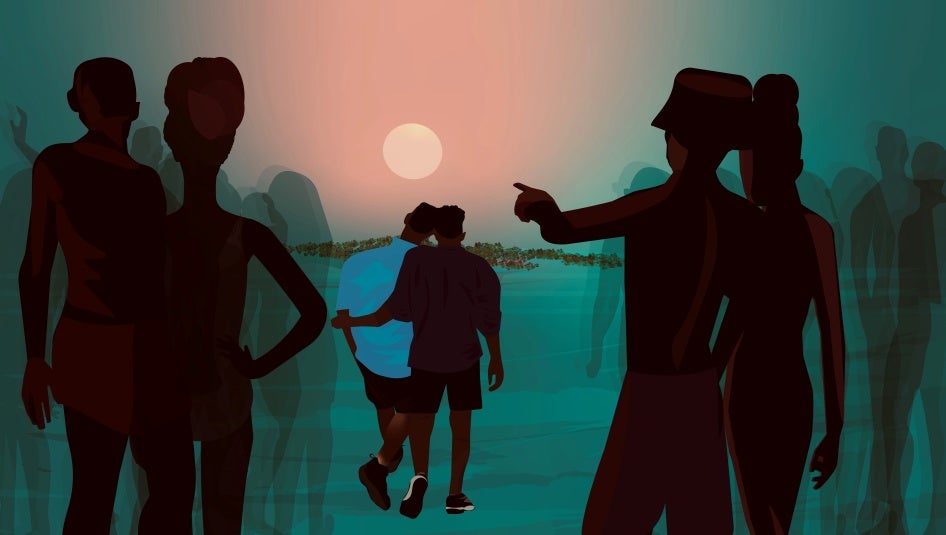Afffirming Gender Care and An Imperative for Human Rights
Marking its 20th anniversary, the LGBT rights program at Human Rights Watch authored this collection of articles to explore the multifaceted challenges LGBT people face globally. Through this sequenced narrative, we aim to illuminate diverse facets of LGBT rights, spanning legal landscapes and political trajectories, both on a global scale and within regional contexts.
This series highlights both the progress made and the persistent struggles for bodily autonomy and access to fundamental rights, from the erosion of legal recognition for trans individuals in the US to the hyper-medical control over trans people in the absence of legal protections. It also highlights decriminalization movements in the “Global South,” and the de facto criminalization of same-sex relationships. We include discussion of the fight for familial rights by LBQ+ individuals, the manipulation of child-protective arguments by anti-LGBT actors, and the reclaiming of Pan-Africanism to support LGBT people’s rights.
by Kyle Knight
Earlier this year, Germany became the world’s latest country to pass a clear law that allows transgender people to change their legal gender to reflect their identity based on self-declaration. A number of other countries are staggering toward this goal; in some, policies allow self-identification for some documents and not others. But the majority of the world’s governments still either disallow changes in legal gender recognition altogether or have laws that require trans people to undergo medical intervention to access their rights.
An Urgent Call to Protect Gender-Affirming Care
by Yasemin Smallens
Amid the ongoing strides in lesbian, gay, bisexual, and transgender (LGBT) rights, a disconcerting trend has surfaced: government bans on life-saving medical care for transgender people. Currently, 24 US states have enacted prohibitions on gender-affirming care for trans youth, leaving over 36 percent of such youth without access to treatment. Despite claims by conservative leaders that these bans protect vulnerable children, the reality is that these restrictions can put them in danger.
Decriminalizing Gay Sex: A Universal Human Rights Imperative
by Cristian González Cabrera
In April, Dominica became the latest country to decriminalize consensual same-sex conduct. A local court ruled that provisions banning “buggery” and “serious indecency,” understood to criminalize gay sex, were unconstitutional. The ruling is historic for Dominica because it finally cast off a colonial legal relic that had been an obstacle to full equality for sexual and gender minorities. But beyond this Eastern Caribbean nation, the ruling has important implications.


Comments